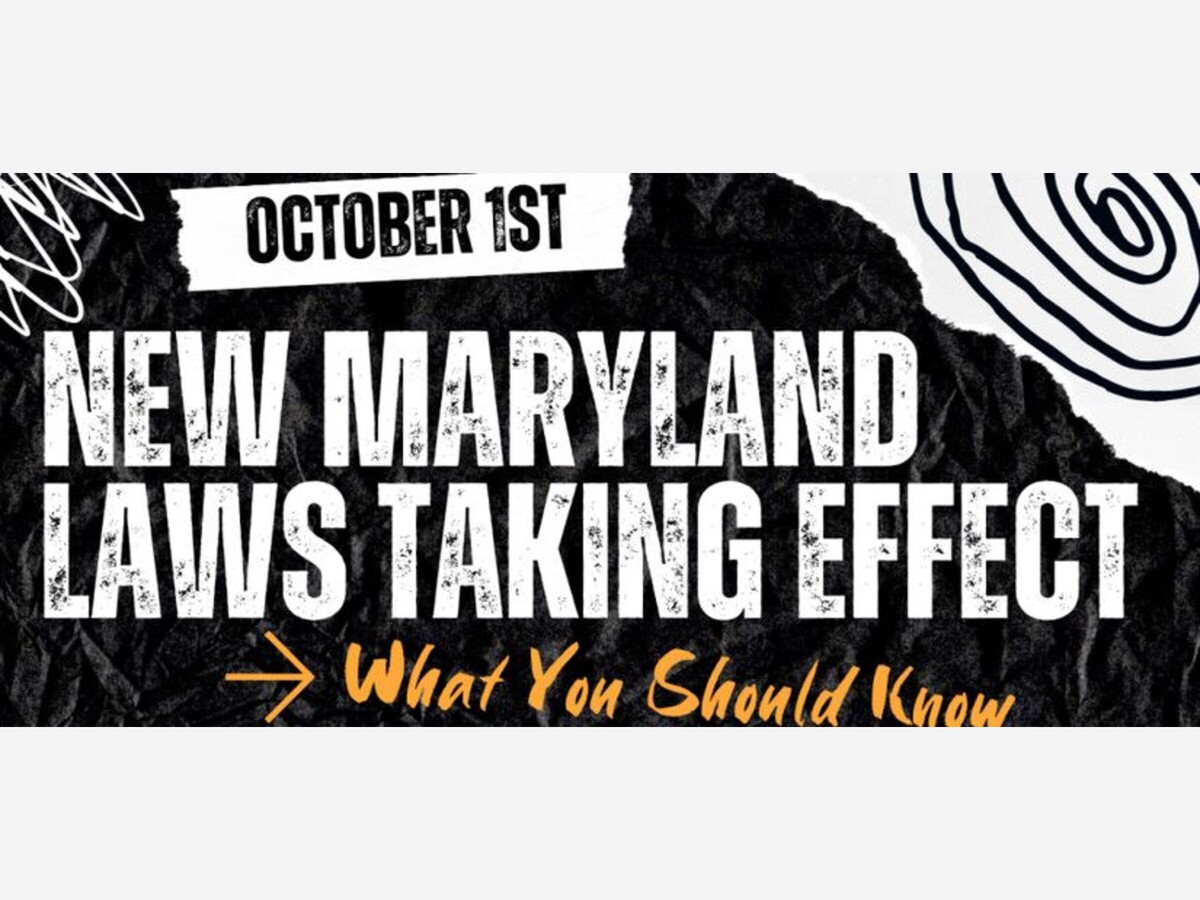Image

Here Are 10 New MD Laws Going Into Effect On Oct. 1, 2025
From reckless driving penalties to disability identification, these laws affecting Marylanders go into effect on Oct. 1.
In all, 430 new laws go into effect next week.
Here's a look at 10 new laws that will impact the lives of Marylanders:
These new law is aimed at increasing safety for police, fire and emergency medical services personnel working on Maryland roadsides. The law requires drivers approaching from the rear of an emergency vehicle using visual signals while stopped on a highway to, if possible, move into an available lane not immediately adjacent to the emergency vehicle. If moving to another lane away is not possible, the law requires drivers to slow to a reasonable speed that is safe for existing weather, road and traffic conditions.
Until now, judges have mostly relied on case law to determine the best interests of children in custody cases. On Oct. 1, courts will now consider certain factors, such as a child’s stability, safety, and relationships with parents and siblings, when determining legal and physical custody. The law will also authorize the court to modify a child custody or visitation order if it determines there has been a material change in circumstances since the issuance of the order.
Under this new law, landlords can no longer charge late payment penalties based on a tenant's full rent amount. As of Oct. 1, landlords can only charge someone in a residential lease a penalty of no more than 5 percent of the amount of the unpaid rent rather than the total amount due. This means tenants who make partial payments will not be over-penalized.
This bill alters the provisions of law related to a hospital's financial assistance and collection of debts policies. Hospitals will be required to provide discounted care for families earning up to 500 percent of the federal poverty level. It also prohibits a hospital from filing a civil action to collect a debt against a patient whose outstanding debt is at or below $500.
This law reduces the penalties for a person using or possessing drug paraphernalia. A first offense now carries a fine of up to $500, while subsequent violations are capped at 1 year in jail or a $1,000 fine, down from 2 years and $2,000.
This bill, also called The Sergeant Patrick Kepp Act, was passed in response to the 2023 line-of-duty injury of Montgomery County Police Sgt. Patrick Kepp, who was intentionally struck by a driver traveling over 100 mph. This legislation significantly strengthens Maryland’s penalties for dangerous driving behaviors, particularly excessive speeding. Now, drivers will face higher risks of fines, license suspension and insurance hikes for unsafe driving.
Eric’s ID Law gives people with nonapparent disabilities the option to add a butterfly symbol and the words “hidden disability” to their state ID or driver’s license. The goal is to promote safer, more informed interactions with law enforcement and others.
The Expungement Reform Act will expand expungement eligibility for Marylanders with criminal records, making it easier for them to find jobs, housing or obtain loans. This expands the current list of more than 100 crimes for which a person may seek expungement to include credit card theft, making a false statement to police and driving without a license, among others. It also corrects a technicality that made parole violations count against the successful fulfillment of a person’s sentence, effectively barring someone permanently from seeking expungement if they violated parole somewhere along the way.
The Health Equality for Service Members Act goes into effect on Oct. 1 and expands benefits for all uniformed service members. The law provides benefits like free vital records, including birth and death certificates, and allows dependents to remain on waitlists for state services during deployment. It also provides fee exemptions for certain state programs and will provide grant funding to nonprofit organizations that provide behavioral health treatment.
Maryland speed camera fines are set to increase on Oct. 1 for drivers caught speeding by the state's automated speed monitoring systems. Before the law went into effect, all speed camera violations in Maryland carried a flat $40 civil penalty, regardless of how much a driver exceeded the speed limit.
On Oct. 1, the following tiered system will be implemented: